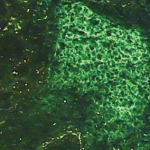Affecting up to 3.1 million Americans, Sjögren’s syndrome is an under-recognized autoimmune disorder associated with a high burden of illness, diminished quality of life and increased healthcare costs. In response to patients’ requests for improved care and physicians’ requests for guidance, the Sjögren’s Syndrome Foundation (SSF) developed clinical practice guidelines, partnering with the American College of Rheumatology (ACR) Quality of Care Committee and staff. Key stakeholders, who include patients and practicing and academic rheumatologists, were brought together. Working groups reviewed scientific literature about the rheumatologic/systemic, ocular and oral manifestations of the disease and developed consensus, resulting in evidence-based recommendations.
“These first-ever standard-of-care guidelines for systemic Sjögren’s syndrome in the U.S. will improve consistency in practice patterns, inform coverage and reimbursement policies, lead to the design and implementation of needed educational programs, highlight areas for future research, and—most importantly—fill a significant clinical void,” write Steven E. Carsons, MD, of Winthrop-University Hospital Campus, State University of New York, Stony Brook, and his colleagues in their article published in the April 2017 issue of Arthritis Care & Research.
In total, the SSF achieved consensus on 19 recommendations—with 11 additional modules for which data were insufficient for the creation of a formal recommendation. However, because no curative or remittive agent currently exists for Sjögren’s syndrome, therapeutic goals remain symptom palliation, improved quality of life, the prevention of damage and the appropriate selection of patients for immunosuppressive therapy.
In the article, Dr. Carsons and colleagues outline the guidelines development process and discuss three rheumatologic topics with recommendations: biologic therapy, fatigue management and the use of disease-modifying anti-rheumatic drugs (DMARDs) for inflammatory musculoskeletal pain.
Biologic Agents for Sicca & Systemic Manifestations
Tumor necrosis factor (TNF) inhibitors: The guidelines strongly recommend against the use of TNF inhibitors to treat sicca symptoms in patients with primary Sjögren’s syndrome. However, “this recommendation should not be interpreted to discourage use of TNF inhibitors in situations [in which] there is overlap with RA [rheumatoid arthritis] or [in which] TNF inhibition therapy is indicated for the treatment of inflammatory arthritis,” write the authors.
Rituximab: Based on multiple randomized clinical trials, rituximab is recommended as a possible therapy for keratoconjunctivitis sicca and xerostomia in patients with primary Sjögren’s syndrome for whom conventional therapies have proved insufficient. The treatment is also an option for patients with Sjögren’s syndrome and the following systemic manifestations: vasculitis, with or without cryoglobulinemia, severe parotid swelling, inflammatory arthritis, pulmonary disease and peripheral neuropathy.


